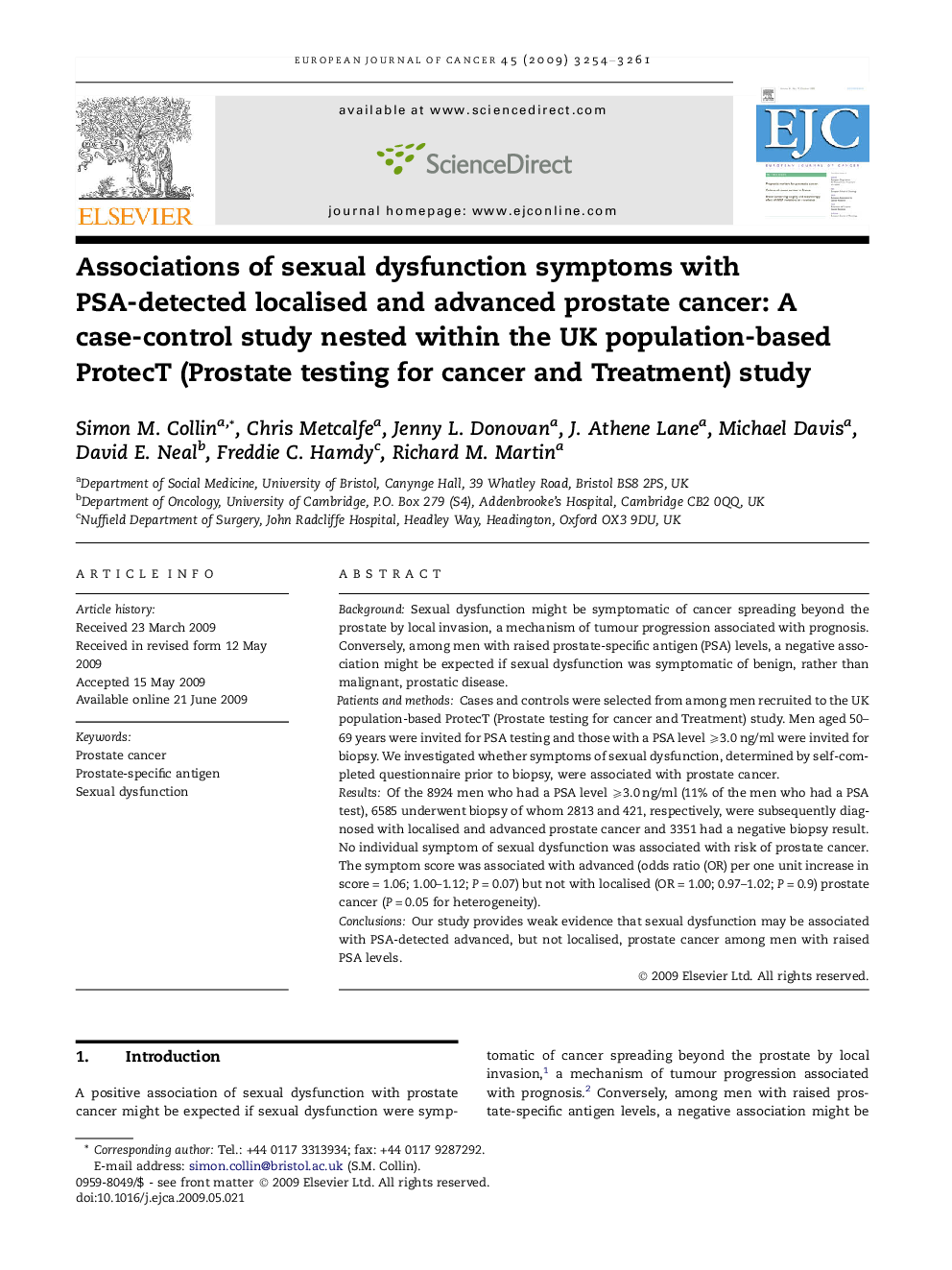| Article ID | Journal | Published Year | Pages | File Type |
|---|---|---|---|---|
| 2123439 | European Journal of Cancer | 2009 | 8 Pages |
BackgroundSexual dysfunction might be symptomatic of cancer spreading beyond the prostate by local invasion, a mechanism of tumour progression associated with prognosis. Conversely, among men with raised prostate-specific antigen (PSA) levels, a negative association might be expected if sexual dysfunction was symptomatic of benign, rather than malignant, prostatic disease.Patients and methodsCases and controls were selected from among men recruited to the UK population-based ProtecT (Prostate testing for cancer and Treatment) study. Men aged 50–69 years were invited for PSA testing and those with a PSA level ⩾3.0 ng/ml were invited for biopsy. We investigated whether symptoms of sexual dysfunction, determined by self-completed questionnaire prior to biopsy, were associated with prostate cancer.ResultsOf the 8924 men who had a PSA level ⩾3.0 ng/ml (11% of the men who had a PSA test), 6585 underwent biopsy of whom 2813 and 421, respectively, were subsequently diagnosed with localised and advanced prostate cancer and 3351 had a negative biopsy result. No individual symptom of sexual dysfunction was associated with risk of prostate cancer. The symptom score was associated with advanced (odds ratio (OR) per one unit increase in score = 1.06; 1.00–1.12; P = 0.07) but not with localised (OR = 1.00; 0.97–1.02; P = 0.9) prostate cancer (P = 0.05 for heterogeneity).ConclusionsOur study provides weak evidence that sexual dysfunction may be associated with PSA-detected advanced, but not localised, prostate cancer among men with raised PSA levels.
